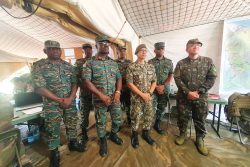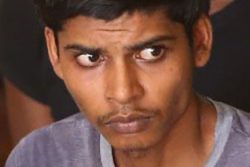 It has been a painful week for all Guyanese. The murders of Joel and Isaiah Henry and Haresh Singh left me feeling depleted, to the point where I feel guilty of even thinking of experiencing any form of joy in the foreseeable future.
It has been a painful week for all Guyanese. The murders of Joel and Isaiah Henry and Haresh Singh left me feeling depleted, to the point where I feel guilty of even thinking of experiencing any form of joy in the foreseeable future.
I know that this is an unhealthy attitude to have but a huge part of me feels as if I should endure some amount of misery for the pain inflicted on three children who had their lives snuffed out brutally. Guilt consumed me. No parent or society should know that pain, ever. Guyana has always been a racially volatile place. A reality that many of us don’t like to acknowledge because it would mean doing personal introspection and holding ourselves accountable. It has always felt as if we were on the verge of tipping over and even more so over the past five months. The social-contract between the state and the people feels as if it is hanging on by thread and both major ethnic groups have been armed with their own truths.
However, we did not end up here overnight. We have been consumed by stories from our elders, stereotypes, myths, and racialized politics on both ends. We have allowed it to fester in our language and the way we treat each other. It is why such heinous crimes are even being debated and in many cases being justified by some members of our society.
Language is the single most important thing to help us understand our deeply-rooted racial divide. I read an article in the Guardian recently by Turkish author and activist Elif Shafak, in which she said that it never starts with concentration camps, genocide, or mass murders, but rather words that force us to develop hate for the side which we are opposing. Shafak said the re-humanising of people thus too needs to start with words.
Where do we go from here, how do we navigate friendships and relationships knowing we have hurt each other? How do we suddenly re-humanize with words? I have found all of the following strategies useful for myself:
Resist the urge to use They/Them – Very often in conversation during the electoral impasse they and them were thrown around when I was conversation with friends. I always felt attacked, particularly because those words referenced people who looked like me and were stereotyping behavioural patterns for an entire race. Don’t blame an entire race for the transgressions of a select few. It is what got us here in the first place. In addition, doing it projects the notion of a superior race.
Empathize – When people share their experiences with you, listen. Don’t try to negotiate them out of their feelings. Let them feel validated. I have a friend who never acknowledges the killing spree that took place in Guyana from 2000-2010. It is always met with the phrase ‘I had no idea’. While I try to bite my tongue because I know some of us exist in privileged bubbles, I would be lying if I didn’t say it felt like a knife being turned in my stomach when my friend also did not ask what happened or could you tell me more. Everyone has experiences and listening doesn’t invalidate your own. You will not lose anything by showing empathy.
Don’t police people’s pain – People will express their anger and grief differently. Some may zone out; some will rightfully protest, and some will simply just want to talk their pain away. However people choose to air their feelings, once it does not involve hurting another human being it is their choice. You don’t get to police their pain.
The death of Guyana’s sons should never be forgotten but rather serve as a reminder that words can both heal and destroy.









